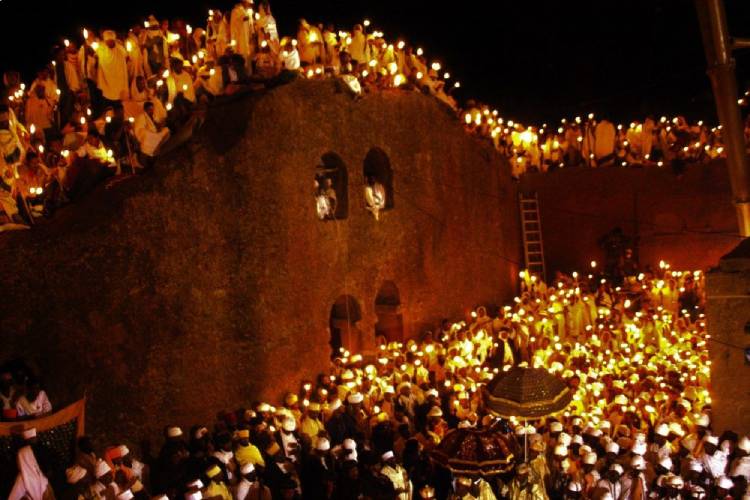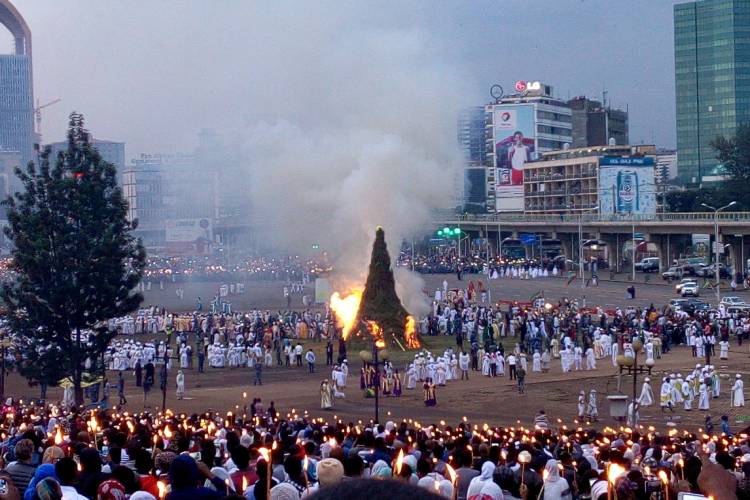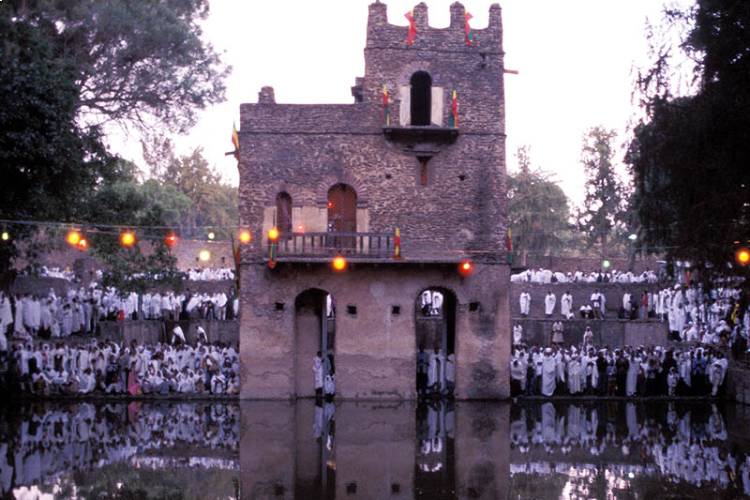Festivals in Ethiopia
Ethiopian celebrations are vibrant, mostly religious, and often span several days. Major Christian holidays include Meskel, Christmas, Timkat, Kiddus Yohannes, and Easter. Timkat, the most colorful, marks Christ’s baptism, while Meskel, in September, commemorates the discovery of the True Cross. Kiddus Yohannes, Ethiopia’s New Year, falls on September 11, signaling the end of the rainy season.
Muslim holidays follow the lunar calendar. Ramadan, a month of fasting, ends with ‘Id Al-Fitr, while ‘Id Al-Adha honors Abraham’s devotion to God. On these days, prayers, animal sacrifices, charity, and family gatherings take place, often accompanied by traditional horse races. Ethiopian Muslims also celebrate the Prophet Muhammad’s birthday on September 20 and honor various martyrs.
Fasika – Easter (May – date varies)
Easter in Ethiopia follows a 55-day fast (Hudade or Abye Tsome) where Orthodox Christians refrain from meat and dairy, eating only vegetarian meals like lentils, grains, and vegetable stews. The first meal is after 3 PM, except on weekends when it’s after the morning service.
On Easter Eve, a colorful candle-lit mass is held from 6 PM to 2 AM. Celebrations in Axum and Lalibela are particularly vibrant. After the service, families break their fast with chicken or lamb, slaughtered the previous night. Easter is also a time for family reunions and gift exchanges, like lamb, goat, or bread.

Meskel – Finding of the True Cross (September 26th and 27th)

Timkat – Ethiopian Epiphany (January 19th or 20th)
Timkat, celebrated on January 19th (or 20th during a leap year), is Ethiopia’s most vibrant festival, marking the Baptism of Christ by John the Baptist. The eve of Timkat, known as Ketera, sees the Tabots from each church paraded to a river or pool for the next day’s festivities. A special tent is erected for the Tabots, while church choirs chant hymns. Priests perform a unique dance with prayer sticks and sistera, accompanied by the rhythmic sounds of drums, bells, and trumpets, creating an unforgettable atmosphere of celebration.

